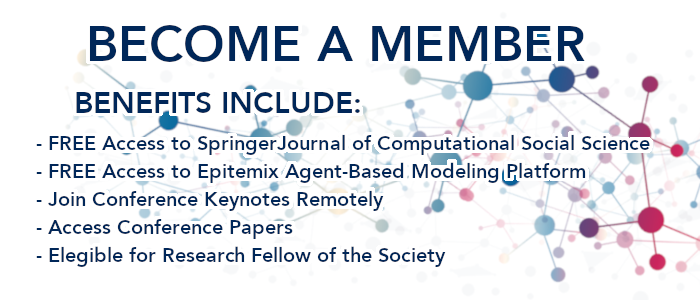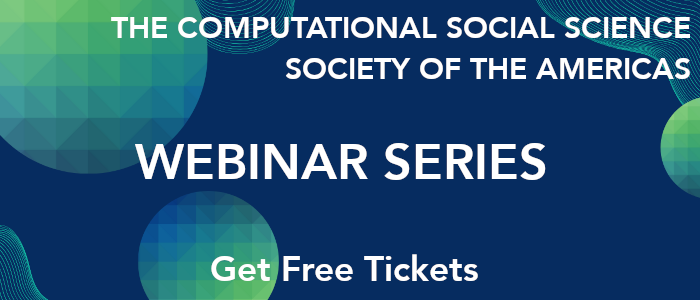CSSSA Webinar Series
The Computational Social Science Society of the Americas (CSSSA) is a professional society that aims to advance the field of computational social science in all its areas, including basic and applied orientations, by holding conferences and workshops, promoting standards of scientific excellence in research, teaching, and publishing research findings and results.
CSSSA has the goals of:
1) Improve the scientific credibility of computational social science.
2) Maintain an institutionally neutral society characterized by scientific integrity.
3) Promote the advancement of computational social science through scientific exchange, transparency, and open discussion.
Scientific progress requires scientists to build upon previous research and developments of their peers and give explicit credit to these peers — to foster trust and integrity. Publishing your research, providing transparency into your algorithms and computer models is strongly encouraged via the Open Agent-Based Modeling Consortium. In addition to providing an open repository for models and simulations OpenABM also provides a valuable forum for collaboration, learning, and networking.
Email the CSSSA officers at: info@computationalsocialscience.org


